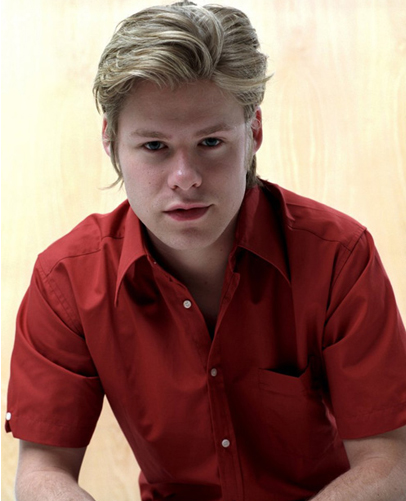
The Glass menagerie
(A Guthrie Theater presentation of a play in two acts by Tennessee Williams. Directed by Joe Dowling).
Tennessee Williams' claustrophobic terrain in "The Glass Menagerie" is familiar turf by now, and it's difficult to imagine a take on the work capable of widening an audience's eyes. Yet the Guthrie stages the play with uncommon freshness and winning vigor in a production that captures Williams' bleak poetry while offering unexpected new possibilities. Director Joe Dowling also introduces a radical new concept in the casting of Tom.
The plot is iconic: Long abandoned by her husband, Amanda Wingfield (Harriet Harris) lives with her children in a run-down apartment, where she prattles on about her Southern belle past and frets for her psychologically stunted, fear-driven daughter Laura (Tracey Maloney). Son Tom (Randy Harrison) supports the women by working a dead-end job, all the while disappearing at night and generally seething with frustration and futility.
Dowling extracts precise and soulful performances from his cast. Maloney's only flaw is being too lovely for the part of the ostensibly homely Laura, though she compensates with a timid, eager-to-please girlishness and painful vulnerability.
Harris throws out all manner of unexpected angles, leavening Amanda's typical brittle anxiety with textures of brashness and assured humor that provide welcome warmth to family scenes typically experienced as undiluted discomfort.
Harrison plays young Tom with an appropriate mix of yearning and frustration, transparently wanting nothing more than to do right in an impossible situation.
It's with the knowledge that the narrative is heading toward a dead end that Dowling makes an innovative choice: splitting the part of Tom into two, with Bill McCallum handling the monologue aspects of the script spoken by the older version of the character. McCallum channels Williams himself, and while the gambit might have been labored or trite in lesser hands, here it's a revelation. The actor lends weary gravity to the memory sections of the narrative, while Harrison is freed to devote his energies entirely to portraying the character as a troubled youth.
The test of Dowling's strategy is whether its seams are visible from the audience. They are not; in fact, one easily imagines Williams writing his script with such a staging in mind. Finally, McCallum takes one tortured look back at the lost ruins of his past as Maloney's Laura slides silently into the void on Richard Hoover's bold set (seedy realism in the apartment, twisted steel and busted neon all around).
A mix of the familiar and the new, Dowling's staging of this frequently revived play, appropriately turns out to be the best production to date in the first season of the new Guthrie.
Tennessee Williams' claustrophobic terrain in "The Glass Menagerie" is familiar turf by now, and it's difficult to imagine a take on the work capable of widening an audience's eyes. Yet the Guthrie stages the play with uncommon freshness and winning vigor in a production that captures Williams' bleak poetry while offering unexpected new possibilities. Director Joe Dowling also introduces a radical new concept in the casting of Tom.
The plot is iconic: Long abandoned by her husband, Amanda Wingfield (Harriet Harris) lives with her children in a run-down apartment, where she prattles on about her Southern belle past and frets for her psychologically stunted, fear-driven daughter Laura (Tracey Maloney). Son Tom (Randy Harrison) supports the women by working a dead-end job, all the while disappearing at night and generally seething with frustration and futility.
Dowling extracts precise and soulful performances from his cast. Maloney's only flaw is being too lovely for the part of the ostensibly homely Laura, though she compensates with a timid, eager-to-please girlishness and painful vulnerability.
Harris throws out all manner of unexpected angles, leavening Amanda's typical brittle anxiety with textures of brashness and assured humor that provide welcome warmth to family scenes typically experienced as undiluted discomfort.
Harrison plays young Tom with an appropriate mix of yearning and frustration, transparently wanting nothing more than to do right in an impossible situation.
It's with the knowledge that the narrative is heading toward a dead end that Dowling makes an innovative choice: splitting the part of Tom into two, with Bill McCallum handling the monologue aspects of the script spoken by the older version of the character. McCallum channels Williams himself, and while the gambit might have been labored or trite in lesser hands, here it's a revelation. The actor lends weary gravity to the memory sections of the narrative, while Harrison is freed to devote his energies entirely to portraying the character as a troubled youth.
The test of Dowling's strategy is whether its seams are visible from the audience. They are not; in fact, one easily imagines Williams writing his script with such a staging in mind. Finally, McCallum takes one tortured look back at the lost ruins of his past as Maloney's Laura slides silently into the void on Richard Hoover's bold set (seedy realism in the apartment, twisted steel and busted neon all around).
A mix of the familiar and the new, Dowling's staging of this frequently revived play, appropriately turns out to be the best production to date in the first season of the new Guthrie.
Copyright © 2007 randy-harrison.it | All rights
reserved
Written by Quinton Skinner - Edited by Marcy
Written by Quinton Skinner - Edited by Marcy